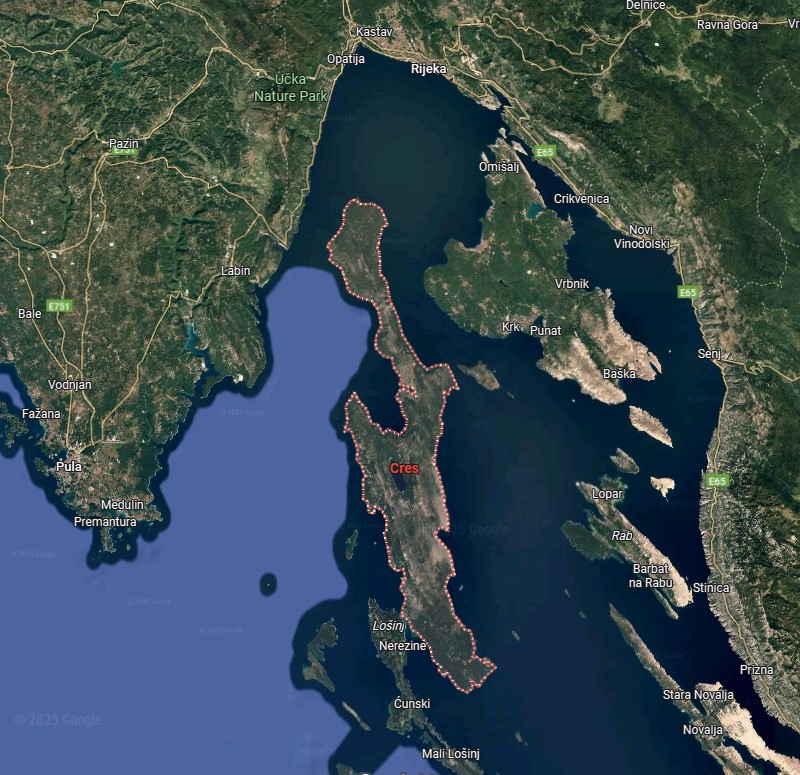BIP: Passenger Rights in Motion: From Traditional Transport to Smart Mobility
Partners:
University of Rijeka, Faculty of Law
University of Antwerp
University Carlos III de Madrid (UC3M)
University of Udine
Nicolaus Copernicus University in Torun
Virtual part of BIP: MS Teams, March 1 – April 10, 2026
Physical part of BIP: Moise Palace, Island of Cres (Croatia), April 13–17, 2026
BIP organiser contact: Assoc. Prof. Iva Tuhtan Grgić (iva.tuhtan.grgic@uniri.hr)
Teaching Language: English
Number of ECTS Credits Awarded: 3 ECTS
OBJECTIVE:
The main objective of this Blended Intensive Programme is to provide students with a comprehensive understanding of passenger rights across traditional transport modes and emerging smart mobility services. The programme aims to equip students with the legal knowledge and practical skills necessary to critically analyse, apply, and develop legal frameworks addressing challenges in the evolving mobility landscape.
DESCRIPTION:
This programme combines online lectures, group work, case studies, and written assignments to explore the legal regimes governing passenger rights in air, rail, road, and maritime transport, as well as in innovative smart mobility solutions. The online component builds foundational knowledge and analytical skills, while the on-site part focuses on interactive activities such as moot court simulations and student presentations. Through this blended approach, students will engage with both theoretical concepts and real-world scenarios, fostering critical thinking, legal reasoning, and collaborative problem-solving in an international context.
Virtual Component Description:
The virtual component of the programme will provide students with a solid theoretical foundation in the field of passenger rights and smart mobility. Through a combination of live online lectures and interactive group work, students will explore key legal instruments governing passenger protection in classical transport sectors (air, rail, road, maritime) as well as in emerging smart mobility services.
Students will be assigned legal case studies and problem-based tasks to analyse in small groups, applying legal norms to hypothetical scenarios. They will also prepare short written assignments (e.g. essays or legal briefs). These assignments will later be presented and discussed during the on-site component.
The virtual sessions will foster active student engagement and critical thinking while preparing participants for the practical, case-based work to follow in person.
LEARNING OUTCOMES
- Identify the key EU and international legal frameworks governing passenger rights in traditional transport sectors
- Describe the main principles of passenger protection under EU regulations
- Critically assess the adequacy of current EU legal instruments in protecting passenger rights across evolving transport systems
- Analyse legal gaps and enforcement challenges in the context of digital mobility and platform-based transport services
- Critically apply legal norms to assess carrier liability and passenger rights in hypothetical cases
TEACHING METHODS
The programme will combine a variety of teaching and learning methods to encourage active student engagement and the development of both theoretical and practical skills:
- Online lectures will provide foundational knowledge on passenger rights and legal frameworks, with opportunities for real-time interaction and discussion
- Group work will be used to foster collaborative learning, enabling students to analyse legal texts and solve practical case studies together
- Case-based exercises and problem-solving tasks will be assigned during the online phase, allowing students to apply legal norms to hypothetical scenarios
- Students will be expected to write short essays, demonstrating critical understanding of selected topics and their application in diverse contexts
- During the on-site component, students will present the assignments prepared during the online phase, share insights, and receive feedback from peers and instructors
- During the on-site component, students will participate in a moot court simulation, where they will assume different roles to argue cases related to passenger rights in both classical transport and smart mobility.
